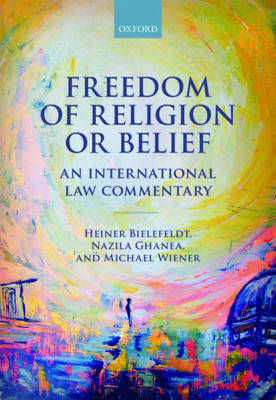
November 14, 2024
Religious freedom violations and violence committed in the name of religion dominate daily headlines, highlighting a pressing global issue. Recognized as a fundamental human right, freedom of religion or belief is enshrined in key international legal instruments such as the International Covenant on Civil and Political Rights (ICCPR) and various United Nations conventions, declarations, and soft law standards.
The 1981 Declaration on the Elimination of All Forms of Intolerance and of Discrimination Based on Religion or Belief serves as a pivotal document in this field. Since 1986, its principles have been interpreted and advanced by the United Nations Special Rapporteur on Freedom of Religion or Belief, a mandate focused on protecting this core right. Complementing these efforts are other UN Special Rapporteurs, including those addressing racism, freedom of expression, and minority issues, as well as Treaty Bodies like the Human Rights Committee, the Committee on the Elimination of Racial Discrimination, and the Committee on the Rights of the Child. Together, these entities provide a comprehensive framework for addressing religious discrimination and intolerance worldwide.
Comprehensive Analysis of Religious Freedom in International Law
A groundbreaking commentary titled Freedom of Religion or Belief: An International Law Commentary offers an exhaustive analysis of international protections for religious freedom. This work examines how United Nations Special Procedures and Treaty Bodies interpret and apply these provisions.
The commentary is structured around thematic categories outlined by the UN Special Rapporteur’s framework for communications, addressing key issues such as:
- Limitations on religious expression, including restrictions on wearing religious symbols.
- Vulnerable groups, such as women, detainees, refugees, children, minorities, and migrants.
Blending scholarly expertise with practical insights, the publication provides a critical resource for understanding the complexities and challenges surrounding religious freedom.
The Ongoing Challenge
As religious persecution and intolerance persist globally, the international community continues to grapple with how best to safeguard the right to freedom of religion or belief. The collaborative work of UN bodies, legal scholars, and human rights advocates is essential in ensuring this fundamental freedom is upheld for all, regardless of faith or belief.
This issue remains a cornerstone of human rights discourse, calling for renewed commitment to tolerance, equality, and mutual respect.